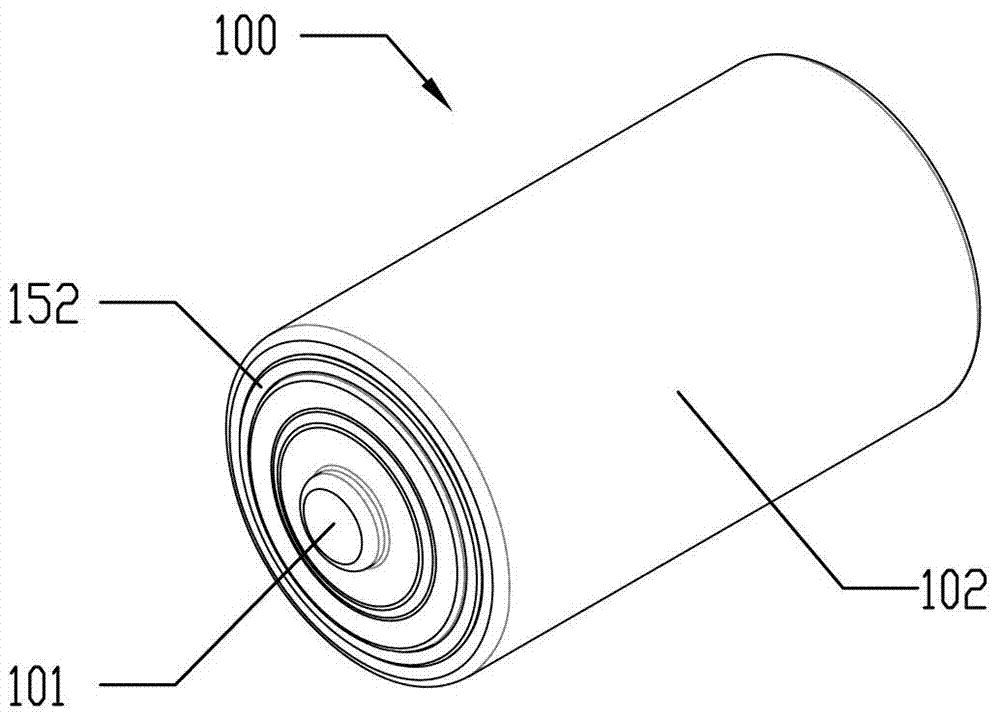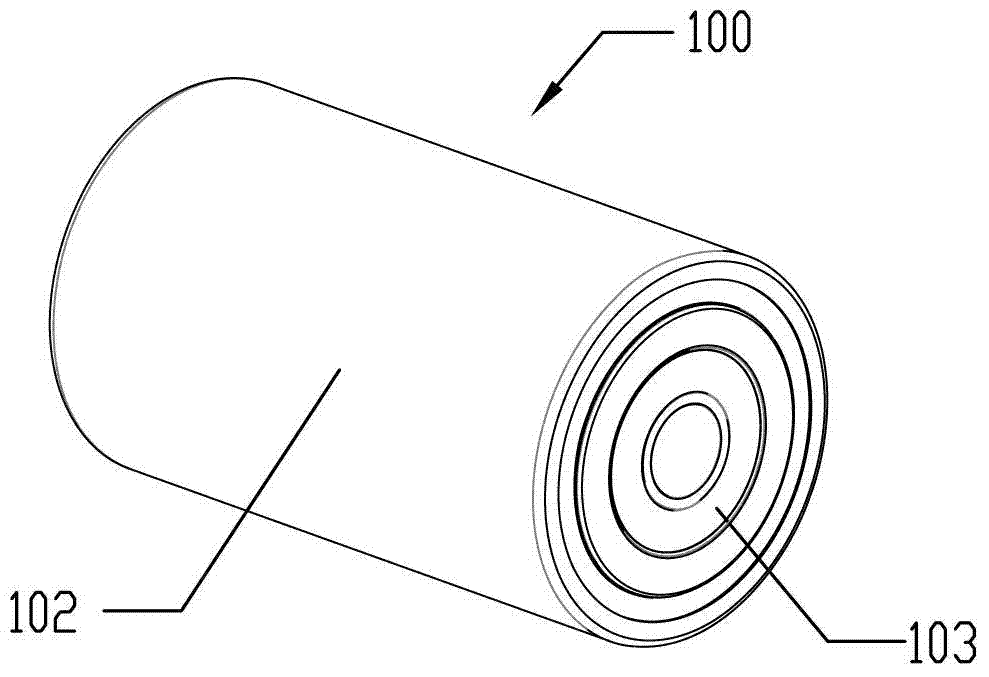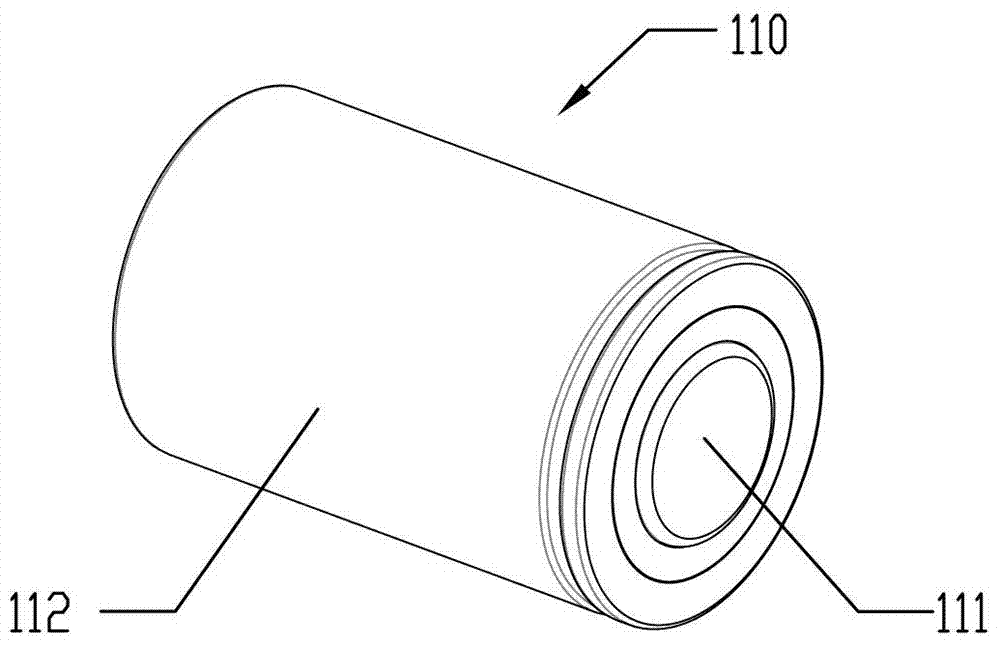Universal rechargeable battery formed by adopting lithium-ion battery and control method thereof
A lithium-ion battery, rechargeable battery technology, applied in battery circuit devices, charge/discharge current/voltage regulation, secondary batteries, etc., can solve the problems of unfavorable automated mass production assembly, reduced efficiency and reliability, reduced cycle life and safety It is beneficial to the automatic mass production assembly, the structure and assembly process are simple, and the circuit failure problem is prevented.
- Summary
- Abstract
- Description
- Claims
- Application Information
AI Technical Summary
Problems solved by technology
Method used
Image
Examples
Embodiment Construction
[0082] In order to further illustrate the technical means adopted by the present invention and its effects, the following describes in detail in conjunction with preferred embodiments of the present invention and accompanying drawings.
[0083] The invention provides a general-purpose rechargeable battery composed of a lithium-ion battery, comprising: an outer package casing, and a charge-discharge controller, a positive electrode welding piece, a lithium-ion battery, and a negative terminal that are sequentially press-fitted and assembled in the outer package casing Cover; one end of the charge-discharge controller is provided with a positive terminal cover with a positive contact point exposed to the outer packaging shell, the positive contact point is used as the positive electrode of a general-purpose rechargeable battery, and one end of the negative terminal cover is provided with a positive terminal cover exposed to the outside The negative electrode contact point of the ...
PUM
 Login to View More
Login to View More Abstract
Description
Claims
Application Information
 Login to View More
Login to View More - Generate Ideas
- Intellectual Property
- Life Sciences
- Materials
- Tech Scout
- Unparalleled Data Quality
- Higher Quality Content
- 60% Fewer Hallucinations
Browse by: Latest US Patents, China's latest patents, Technical Efficacy Thesaurus, Application Domain, Technology Topic, Popular Technical Reports.
© 2025 PatSnap. All rights reserved.Legal|Privacy policy|Modern Slavery Act Transparency Statement|Sitemap|About US| Contact US: help@patsnap.com



